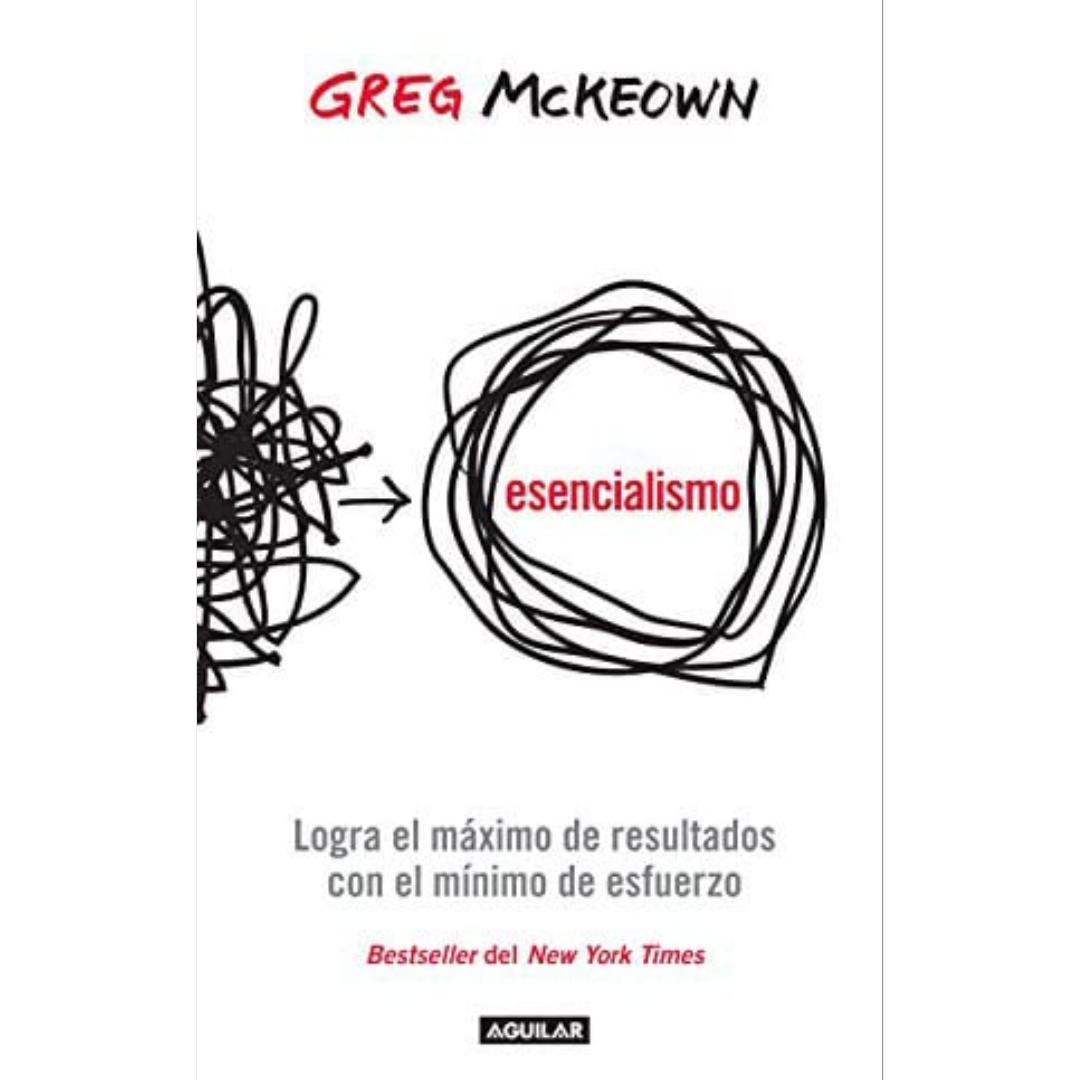Book Summary of Essentialism

Essentialism by Greg McKeown: A Summary of Life-Changing Principles
In a world inundated with options, distractions, and commitments, the concept of essentialism offers a refreshing perspective on how to live a more fulfilling and purposeful life. In his book “Essentialism: The Disciplined Pursuit of Less,” author Greg McKeown advocates for the art of discerning what truly matters and eliminating everything else. This book summary explores the core principles of essentialism and how they can transform our approach to work, life, and everything in between.
Chapter 1: The Essence of Essentialism
McKeown begins by distinguishing between essentialism and non-essentialism. Essentialism involves deliberately choosing where to focus time and power, whereas non-essentialism is characterized by the tendency to spread oneself too thin, saying yes to everything, and feeling overwhelmed as a result. By embracing essentialism, individuals can reclaim their time and awareness to pursue what truly matters.
Chapter 2: The Way of the Essentialist
Central to the essentialist philosophy is the notion of trade-offs. McKeown emphasizes the importance of making trade-offs consciously rather than allowing them to happen by default. Essentialists understand that saying no to certain possibilities or commitments enables them to say yes to the things that align with their priorities. Additionally, they prioritize tasks that contribute the most important value and learn to gracefully decline distractions.
Chapter 3: Choose: The Invincible Power of Choice
At the heart of essentialism lies the power of choice. McKeown argues that we have more control over our lives than we realize, but this control needs making deliberate choices aligned with our values and objectives. By embracing the power of choice, individuals can design their lives in a way that reflects their true priorities and aspirations.
Chapter 4: Discern: The Unimportance of Basically Everything
Discernment is a critical skill for essentialists. McKeown encourages readers to evaluate opportunities, tasks, and commitments through the lens of essentialism, asking themselves, “Is this essential?” By distinguishing between the important few and the trivial many, individuals can allocate their resources more effectively and avoid the trap of busyness for its sake.
Chapter 5: Trade-Off: Which Problem Do I Want?
Trade-offs are inherent in the purpose of essentialism. McKeown suggests that rather than viewing trade-offs as sacrifices, essentialists should see them as choices between contending priorities. By accepting trade-offs as a natural part of decision-making, people can make more intentional choices and achieve greater clarity and focus in their pursuits.
Chapter 6: Escape: The Perks of Being Unavailable
In a world where constant connectivity is the norm, the ability to disconnect and recharge is important for maintaining focus and creativity. McKeown advocates for the practice of strategic disengagement, where individuals deliberately carve out time for solitude, reflection, and renewal. By creating boundaries and respecting their essential for rest, essentialists can prevent burnout and sustain high performance over the long term.
Chapter 7: Look: See What Really Matters
Essentialists cultivate a habit of discerning what truly matters in any given position. McKeown encourages readers to adopt a mindset of interest and inquiry, seeking to uncover the underlying significance behind surface-level observations. By looking beyond the obvious, individuals can identify opportunities for meaningful contribution and satisfaction.
Chapter 8: Play: Embrace the Wisdom of Your Inner Child
Playfulness is not just for children; it’s an essential aspect of creativity and innovation for adults as well. McKeown emphasizes the vital of incorporating play into our lives, whether through hobbies, experimentation, or imaginative thinking. By embracing a playful mindset, essentialists can unlock new insights, answers, and possibilities.
Chapter 9: Sleep: Protect the Asset
Sleep is often sacrificed in the pursuit of productivity, but McKeown argues that it’s important for overall well-being and performance. Essentialists prioritize sufficient rest and recovery, recognizing that sleep deprivation undermines cognitive function, decision-making, & emotional resilience. By honouring their need for sleep, individuals can enhance their productivity and usefulness during waking hours.
Chapter 10: Select: The Power of Extreme Criteria
In the final chapter, McKeown introduces the concept of extreme criteria for decision-making. Essentialists set high standards and criteria for what they choose to pursue, focusing only on opportunities that meet these rigorous criteria. By raising the bar for selection, people can ensure that their time and resources are invested in endeavours that align with their values and goals.
Conclusion:
“Essentialism” offers a compelling framework for simplifying life and maximizing effect. By embracing the principles of essentialism, individuals can cultivate greater clarity, ambition, and fulfilment in their personal and professional endeavours. Through conscious choices, discernment, and a commitment to the important few, anyone can embark on the disciplined pursuit of less and unlock their true potential.